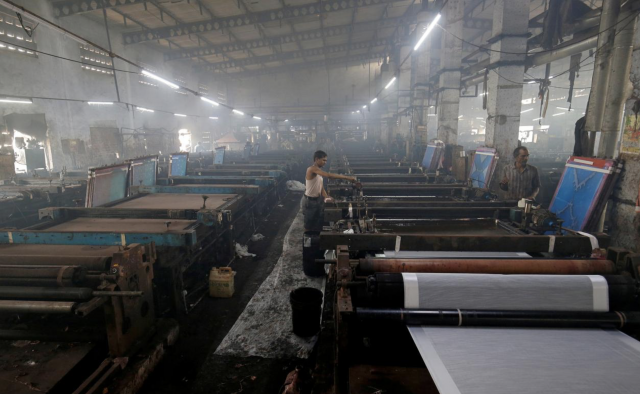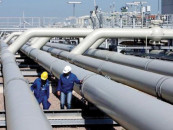Pakistan's LSM sector shrinks 10.3% in Jul-May FY20
Decline in large industries highlights need for review of economic policies

The large industrial sector, which had been shrinking even before the deadly pandemic hit the economy, further contracted by 10.3% in first 11 months of the previous fiscal year, underscoring the need for a review of economic policies.
Large-scale manufacturing (LSM) output shrank 10.3% in July-May of fiscal year 2019-20 over the same time of previous year, the Pakistan Bureau of Statistics (PBS) reported on Tuesday. The LSM contracted by 24.8% in May alone over the same month a year ago, stated the national data-collecting agency.
PBS is the most important national data agency but the Pakistan Tehreek-e-Insaf (PTI) government has failed to appoint professionals to run its affairs. It is being run on an ad hoc basis by the Ministry of Planning and Development.
Many key posts, including that of chief statistician, who happens to be the in charge of the organisation, remain vacant.
On a month-on-month basis, the LSM posted a positive growth of 20.5% in May 2020 over April due to better output in fertiliser and pharmaceutical sectors. But almost all the other big industries faced contraction on a monthly basis too.
The respiratory disease, Covid-19, had started impacting Pakistan’s economy from the third week of March this year. But large industries had been struggling even before the pandemic hit the economy.
The LSM sector has been shrinking since the start of fiscal year 2019-20, which began in July 2019, due to double-digit interest rate, currency depreciation resulting in a high cost of inputs, higher taxes and increase in electricity and gas prices.
After the spread of the disease, the government has conveniently thrown the responsibility on to Covid-19 instead of correcting its economic policies. Pakistan is de-industrialising with the manufacturing sector’s contribution to the gross domestic product (GDP) declining every year. PBS data showed that out of 15 major industries, being assessed by the PBS, only three recorded some growth while output in 12 industries shrank in July-May of fiscal year 2019-20.
Data collected by the Oil Companies Advisory Committee (OCAC) showed that 11 types of industries registered average negative growth of 1.3% in first 11 months of FY20. In May alone, the OCAC-monitored industries reported 1.2% negative growth on a year-on-year basis. The Ministry of Industries and Production, which monitors 15 industries, reported a 7.9% decline in the growth of these industries. In May 2020, the ministry reported a contraction of nearly 19% over the same month of last year.
Similarly, the provincial bureaus reported a 1.2% contraction in 11 industries in first 11 months of the previous fiscal year. The provincial bureaus reported that these industries contracted 4.6% in May.
Sectors that posted growth in July-May FY20 included fertiliser, which registered a growth of 5.6%, paper and board 2.1% and rubber products 2.9%. Manufacturing of textile products dipped 10.7% in 11 months of the last fiscal year. Food, beverages and tobacco sector saw contraction of 3.8%, coke and petroleum products 20.9%, pharmaceuticals 4.4%, chemicals 7.5% and non-metallic minerals 3.8%. The automobile sector registered a nearly 45% contraction in July-May FY20. Output of iron and steel products shrank 17%, electronics 25.6%, leather products 6%, engineering products 18.1% and wood products about 39%.
International financial institutions and independent economists have been making varying forecasts for chances of economic revival in the current fiscal year. The International Monetary Fund (IMF) has projected a nominal growth of 1% while the World Bank is forecasting contraction of over 2%.
Former finance minister Dr Hafiz Pasha, last Saturday, stated at The Review - a primetime economic and defence affairs talk show - that the economy may contract in fiscal year 2020-21, for the second successive year. Pakistan’s economy contracted 0.4% in the last fiscal year due to the adverse impact of Covid-19 in the last quarter of the year.
Published in The Express Tribune, July 22nd, 2020.
Like Business on Facebook, follow @TribuneBiz on Twitter to stay informed and join in the conversation.



















COMMENTS
Comments are moderated and generally will be posted if they are on-topic and not abusive.
For more information, please see our Comments FAQ